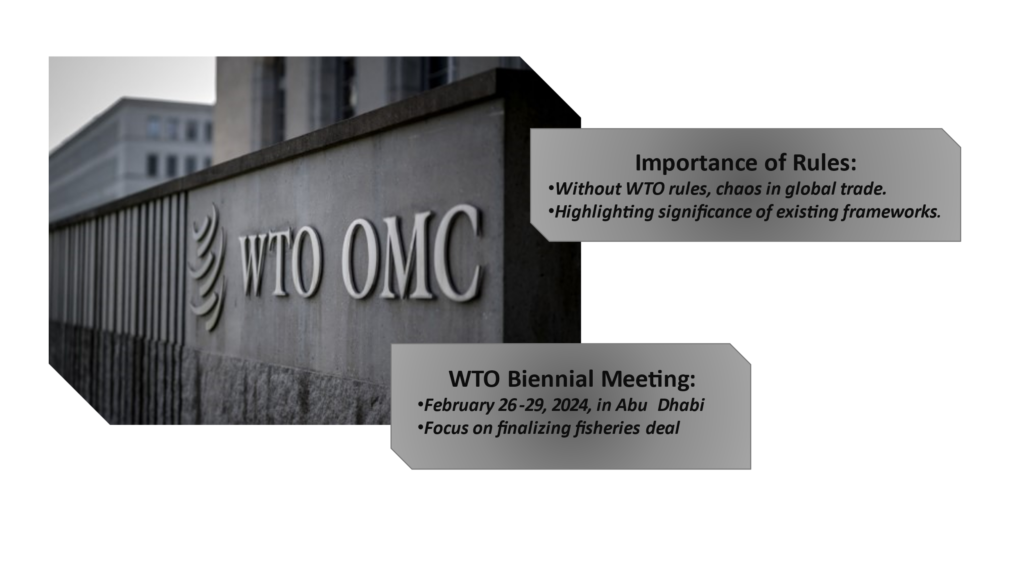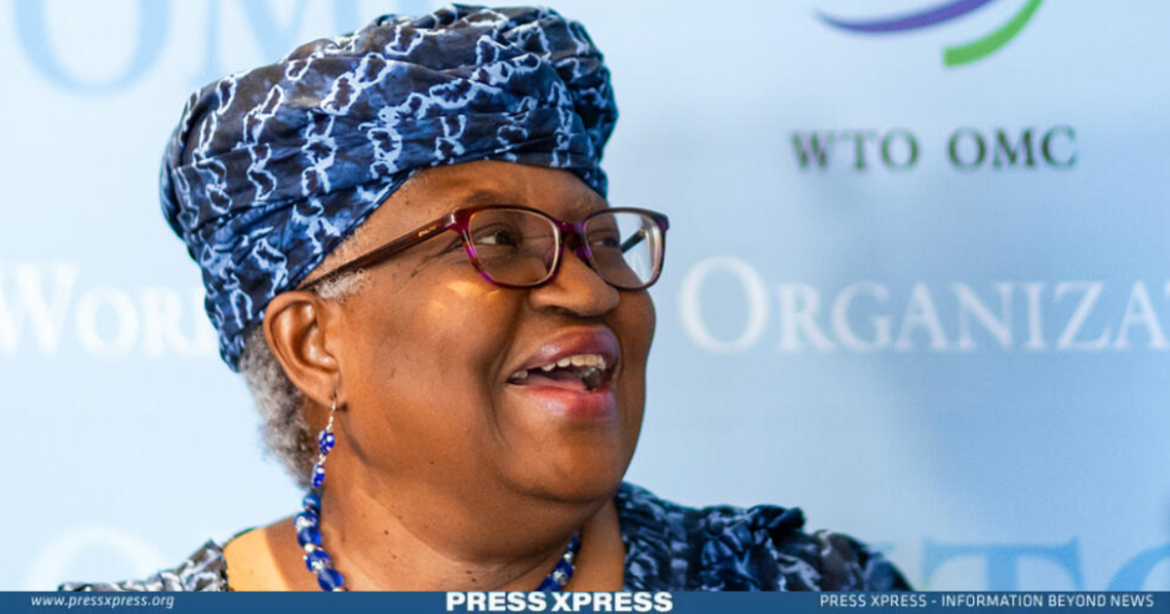- Okonjo-Iweala emphasizes WTO’s vital role in governing 75% of global trade
- WTO ensures rules-based trade for global economic stability
- Diplomatic efforts to finalize agreements ongoing
- Tough negotiations expected, especially on agriculture
As the World Trade Organization (WTO) gears up for its biennial ministerial meeting in Abu Dhabi from February 26-29, the spotlight shines on its role in a rapidly evolving global trade landscape. Despite facing criticism and grappling with unresolved negotiations, the WTO’s Director-General, Ngozi Okonjo-Iweala, remains steadfast in her conviction that the organization is indispensable in governing international trade.
You can also read: Japan falls behind Germany as the World’s third-largest Economy
At the heart of discussions surrounding the upcoming ministerial meeting is the question of the WTO’s relevance in today’s world. Okonjo-Iweala vehemently rejected assertions that the WTO is no longer pertinent, emphasizing that a staggering 75 percent of global trade operates under WTO terms. This staggering figure underscores the pivotal role the organization plays in shaping the rules that govern international commerce. Without these regulations, the global economy would face unprecedented uncertainty and chaos.

Challenges on the Horizon
Despite its significance, the WTO faces formidable challenges as it strives to broker agreements among its diverse membership. The Abu Dhabi meeting marks the 13th ministerial gathering since the WTO’s inception in 1995, with expectations running high, particularly in critical areas such as fisheries, agriculture, and electronic commerce. However, entrenched disagreements persist, hindering progress on crucial issues.
Okonjo-Iweala acknowledges the daunting task ahead, citing the complex geopolitical landscape characterized by tensions stemming from conflicts in Ukraine, security threats in the Red Sea, and economic uncertainties in various regions. Moreover, the looming specter of inflation, soaring food prices, and the impending elections worldwide further complicate the negotiating environment.
Despite the formidable challenges, Okonjo-Iweala remains cautiously optimistic about the prospects for the Abu Dhabi meeting. She notes a more positive and constructive atmosphere among diplomats compared to previous gatherings, signaling a willingness to engage in substantive discussions. However, she cautions against complacency, emphasizing the need for realism in navigating the entrenched differences, particularly concerning contentious issues like agriculture.
The WTO’s agenda for the meeting includes addressing subsidies contributing to overfishing and expanding the moratorium on customs duties for electronic transmissions. These initiatives underscore the organization’s commitment to fostering sustainable and inclusive trade practices in an increasingly interconnected world.

WTO’s mission
Central to the WTO’s mission is the preservation of the multilateral trading system, ensuring that rules-based trade remains the cornerstone of global economic stability. Okonjo-Iweala stresses the importance of implementing necessary reforms to adapt to evolving challenges, regardless of political transitions in member countries. The specter of former US President Donald Trump’s potential return to power looms large, given his previous threats to undermine the WTO through protectionist measures.
Post-Cold War rules
The World Trade Organization (WTO) traces its origins back to the General Agreement on Tariffs and Trade (GATT), established in 1948 as part of a post-World War II effort to foster international cooperation and mitigate the detrimental effects of protectionist policies, which were implicated in exacerbating the Great Depression of the 1930s. Building upon the foundation laid by the GATT, the WTO officially came into existence on January 1, 1995, following the conclusion of the Uruguay Round, the eighth round of GATT trade negotiations spanning from 1986 to 1994.

While the GATT primarily focused on regulating trade in goods, the WTO expanded its scope to encompass various facets of global commerce, including services, intellectual property, and industrial designs. The overarching objective of the WTO system is to facilitate the smooth flow of trade, promoting economic development and prosperity, while endeavoring to minimize adverse consequences.
Critics, however, contend that the organization has grown excessively bureaucratic, with some characterizing it as unwieldy. Operating with a budget of nearly 205 million Swiss francs ($234 million) in the current fiscal year, the WTO boasts a sizable workforce of around 600 individuals at its headquarters in Geneva, comprising a diverse array of professionals such as lawyers, economists, and statisticians.
WTO Straitjacket
The World Trade Organization (WTO) operates within a framework where its 164 member states wield significant influence, but decision-making within the organization is far from straightforward. Achieving consensus on any agreement necessitates unanimous approval, granting each member the power of veto. Notably, approximately three-quarters of WTO members fall under the categories of developing or least-developed countries, affording them greater flexibility in adhering to trade regulations.
While all major economies are part of the WTO, several nations, including Iran, Algeria, Serbia, and Iraq, remain on a waiting list for membership. Joining the WTO involves a protracted accession process, often spanning years, as aspiring members engage in extensive negotiations with existing members, any of whom can block the accession.
Upcoming entrants such as East Timor and the Comoros, categorized as least-developed countries, are poised to formalize their membership bids at the forthcoming meeting in Abu Dhabi.
Dispute Settlement in Disarray
The WTO primarily serves as a platform for multilateral trade negotiations affecting all member states. However, given the challenges of securing unanimous agreement, there is a growing trend towards plurilateral agreements, which involve a more limited number of participants and apply exclusively to those involved.
Despite the painstaking efforts to establish international trade rules, disputes frequently arise, necessitating WTO intervention as an arbiter. Any country, regardless of size, can file complaints with the WTO’s Dispute Settlement Body, leading to instances where major economies find themselves embroiled in disputes initiated by smaller counterparts.
However, the WTO’s dispute resolution mechanism faces significant challenges, particularly since the United States suspended operations of the appeals court in late 2019, stalling the appointment of new judges and throwing the system into disarray.


